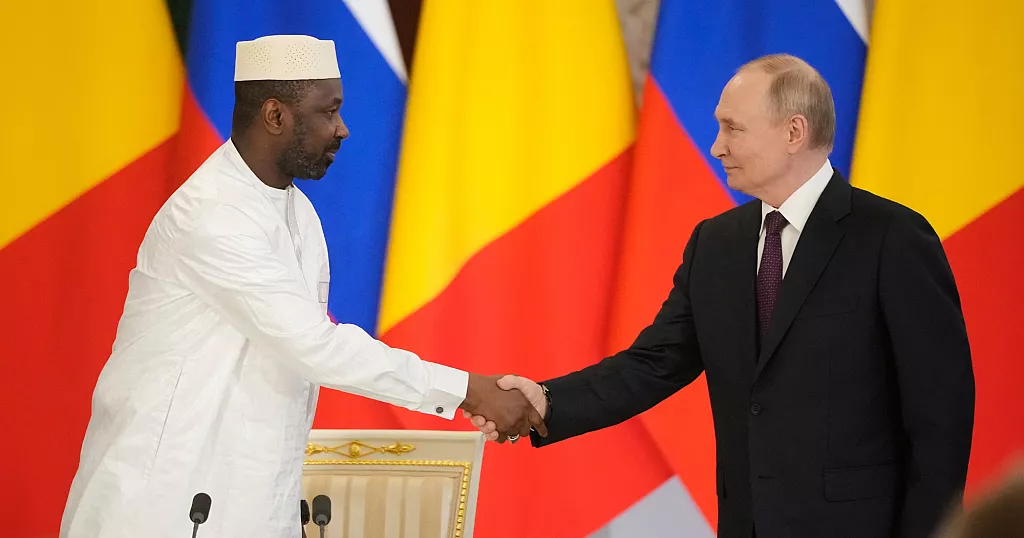
The strategic partnership between Mali and Russia took a significant leap forward on Monday as President Assimi Goïta and Russian President Vladimir Putin presided over the signing of three landmark agreements in Moscow, covering nuclear energy, trade, and security.
On the second day of his five-day official visit to Russia, Mali’s transitional leader met one-on-one with President Putin at the Kremlin, continuing a diplomatic shift that has seen Bamako deepen ties with Moscow following the withdrawal of French forces in 2022 and the end of the United Nations peacekeeping mission in 2023.
The two leaders, after their private discussions, oversaw the signing of an agreement to establish an intergovernmental commission.
This new body will coordinate bilateral cooperation across the economic, scientific, technical, and commercial sectors.
The goal, according to officials, is to attract Russian investment to Mali, facilitate access to Russian markets, and foster technology transfers in key industrial domains.
A second agreement signed with Russian nuclear agency Rosatom focuses on the peaceful use of nuclear energy.
It includes provisions for long-term technical assistance to Mali’s underdeveloped energy sector, where access to electricity remains below 45%. The deal outlines cooperation in areas such as human resource development, nuclear infrastructure planning, and scientific research, although the specific implementation timeline remains undefined.
The third agreement serves as a broad framework for bilateral relations. Emphasizing mutual respect and non-interference, the accord lays the foundation for enhanced political solidarity and includes a robust security component.
Since the official departure of the Wagner Group in May, Russia has maintained its military presence in Mali through a new unit known as Africa Corps, which is overseen by the Russian Ministry of Defense.
This force provides training, intelligence, and logistical support to Malian troops, particularly in the volatile central and northern regions.
Mining was also a key topic during discussions. Following the launch of a gold refinery project in Sénou, the Malian government reiterated its ambition to exert more control over its gold sector.
The project, a joint venture with Russian firm Yadran, aims to process up to 200 tonnes of gold annually—four times Mali’s 2023 exports. However, questions remain over regulatory concerns, including the lack of LBMA certification and the 38% Russian stake in the operating company, SOROMA-SA.
President Putin welcomed the agreements, describing Mali as a “long-standing strategic partner,” and noted that over 10,000 Malian professionals have been trained in Russia since 1960.
President Goïta reaffirmed Mali’s intent to deepen ties with Russia “with respect for sovereignty and in the interest of the people.”
The visit will continue through June 27, with further meetings scheduled in the industrial, technological, and educational sectors.



